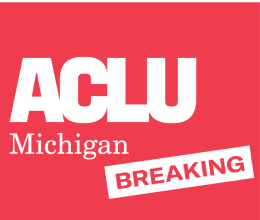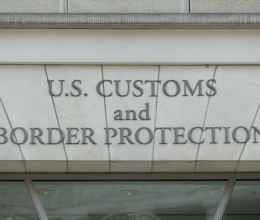
Michigan-based Arab American community organizations, families separated by President Trump’s Muslim ban and the ACLU of Michigan renewed their challenge to the ban today in Arab American Civil Rights League v Trump.
The ongoing lawsuit was filed in January 2017 after President Trump signed an Executive Order banning entry into the United States by citizens from certain Muslim majority countries. After federal courts ruled that the ban was unconstitutional religious discrimination, President Trump issued a second ban in March 2017, which the courts also found unconstitutional. In September 2017, President Trump issued a third version of the ban. In June 2018, the Supreme Court in Trump v. Hawaii ruled 5-4 that the ban could continue while its legality is being challenged.
Plaintiffs Hend and Salim Alshawish, who live in the United States with two of their children who are U.S. citizens, have been unable to bring their other two children, who are Yemeni citizens, to the U.S. because of the ban.
The Michigan case has been on hold since June of 2017. The amended complaint filed today argues that the immigration and travel restrictions on people from the banned Muslim-majority countries is unconstitutional under the standard set by the Supreme Court, which requires that measures to exclude people from the United States be grounded in national security concerns.
“In 2015, candidate Donald Trump called for ‘a total and complete shutdown of Muslims entering the United States,’” said Rula Aoun, Director of the Arab-American Civil Rights League (ACRL). “Three years and three executive orders later, he has remained remarkably consistent. The immigration policies of President Trump, like those of candidate Trump, are motivated by pure and simple religious discrimination, with no sound basis in law or national security.”
“The reunification of Muslim-American families was not a threat before 2017, and it did not suddenly become a threat in January 2017,” said Miriam Aukerman, ACLU of Michigan senior staff attorney. “What changed is that we now have a president who wants to keep people out of this country based on how we pray. This administration has used every tool available to ensure that only certain people and only certain faiths are welcome in America. We must likewise use every tool available, including the courts, to put an end to this religious bigotry.”
The lawsuit is brought by impacted families and a broad coalition of nonprofit and business groups: the Arab American Civil Rights League, the Arab American Chamber of Commerce, the Arab American Studies Association – all based in Dearborn — and the American Civil Liberties Union of Michigan, and the Arab American and Chaldean Council, based in Detroit. The complaint filed today states that, in addition to separating the Alsawish family and other Muslim Americans from their loved ones abroad, the Muslim ban has interfered with travel required for ongoing business, scholarly, cultural and educational activities of the nonprofit and business groups.
“Our nation was founded on the idea of religious freedom, which is a core constitutional right.” said Nishchay Maskay, Covington & Burling attorney, who represents the plaintiffs. “While the Court allowed the ban to continue while it is being challenged, it did so based on preliminary evidence. We look forward to getting all the evidence and proving once and for all that this ban is unconstitutional religious discrimination.”
The plaintiffs are seeking a permanent injunction preventing enforcement and implementation of President Trump’s latest Muslim ban.
In addition to attorneys with ACRL and ACLU of Michigan, the plaintiffs in the case are represented by a team of attorneys from the law firm of Covington & Burling LLP and University of Michigan Law School professor Margo Schlanger.
Read stories of those harmed by the Muslim here.
See a timeline of the Muslim ban here.
Read what you need to know if approached by police, immigration or FBI here.


